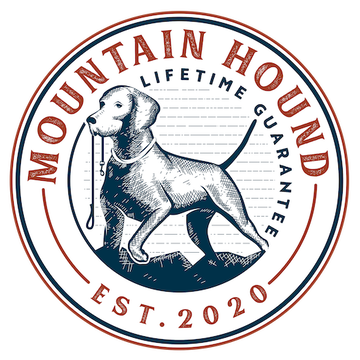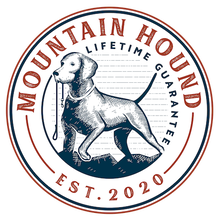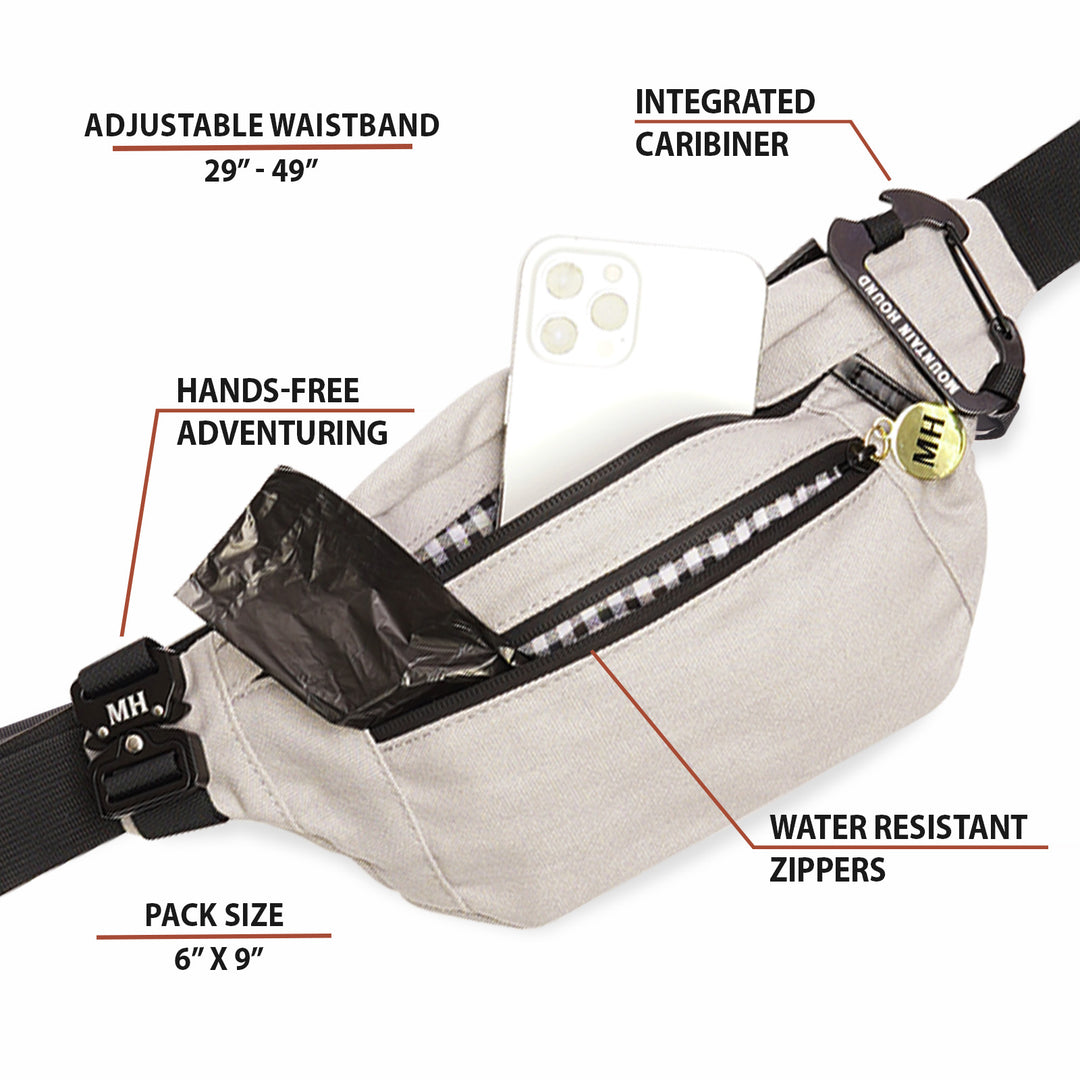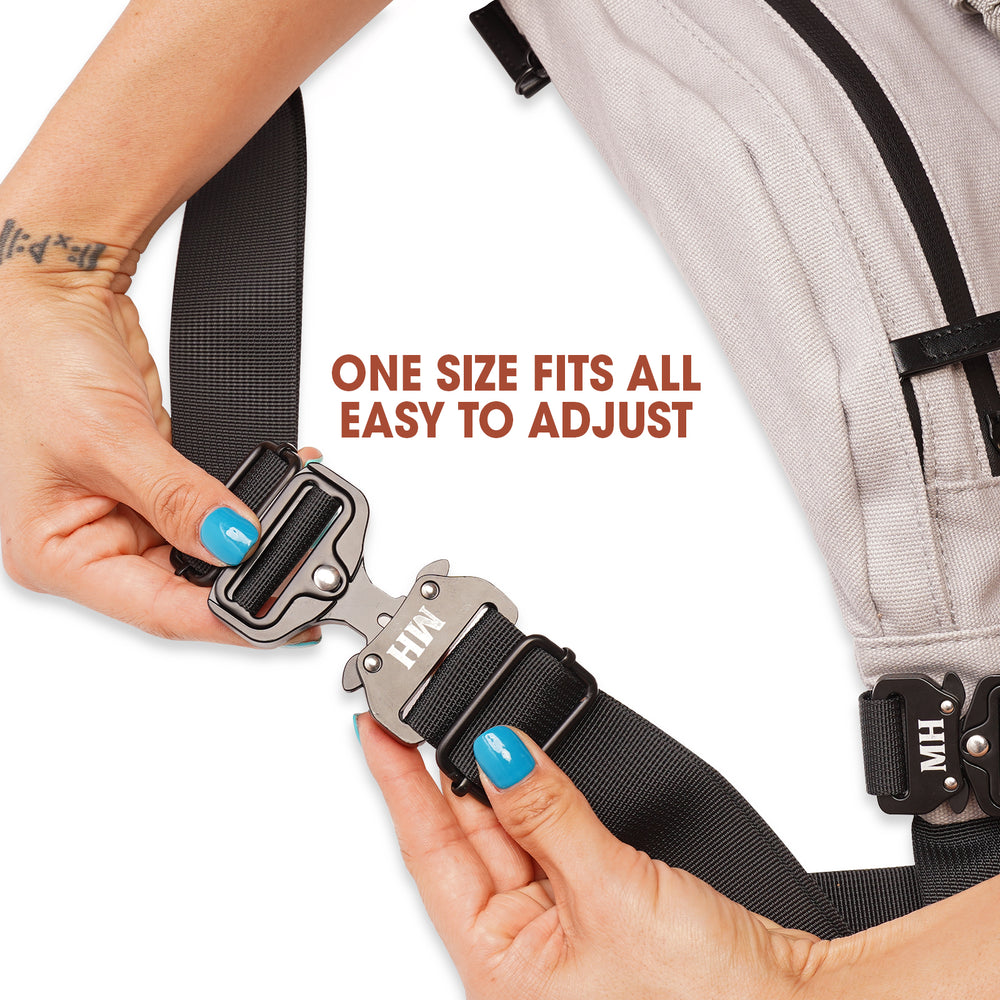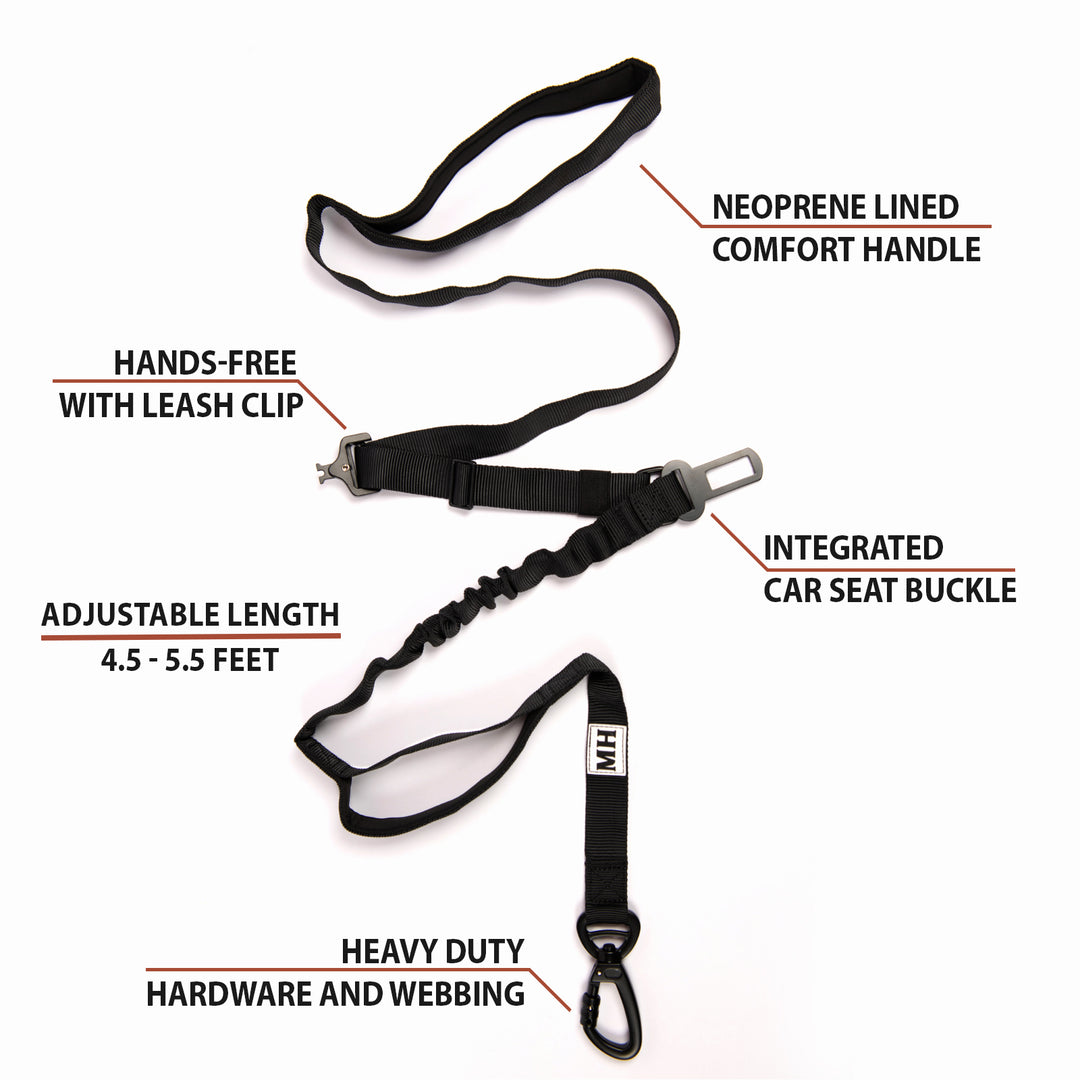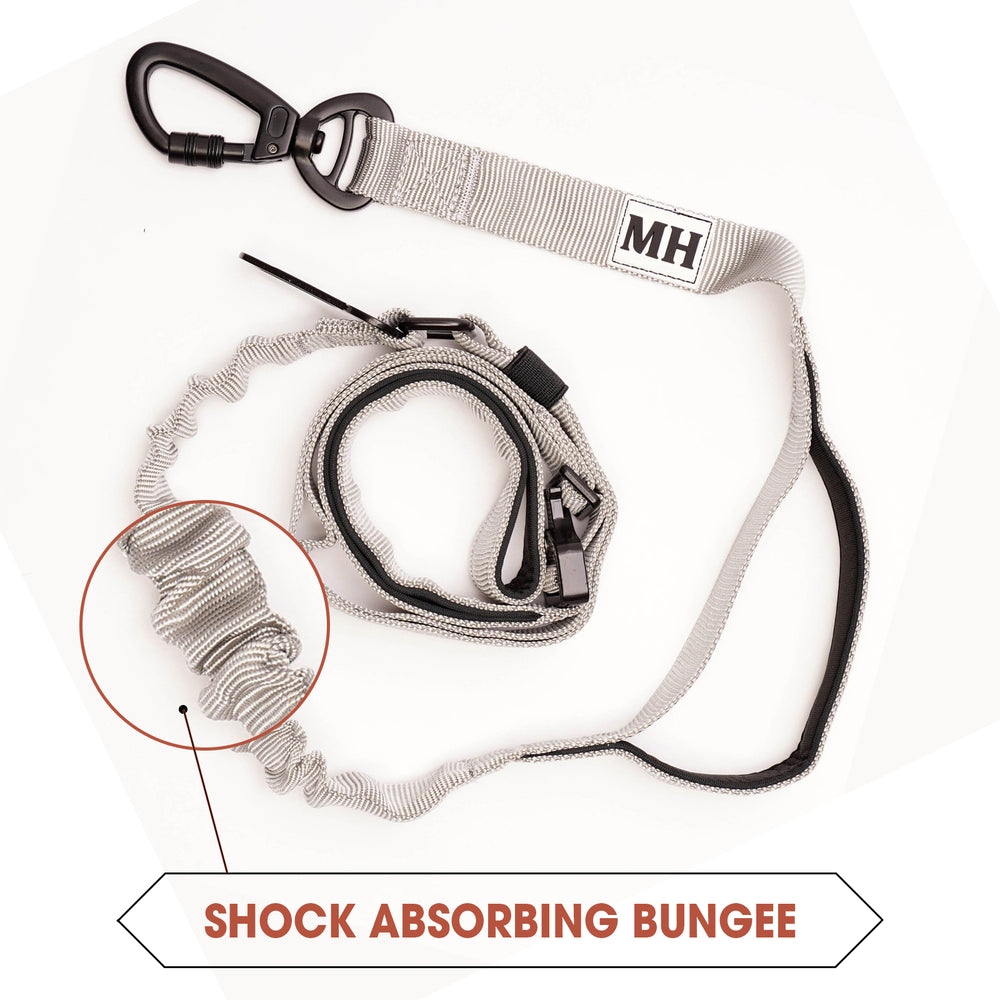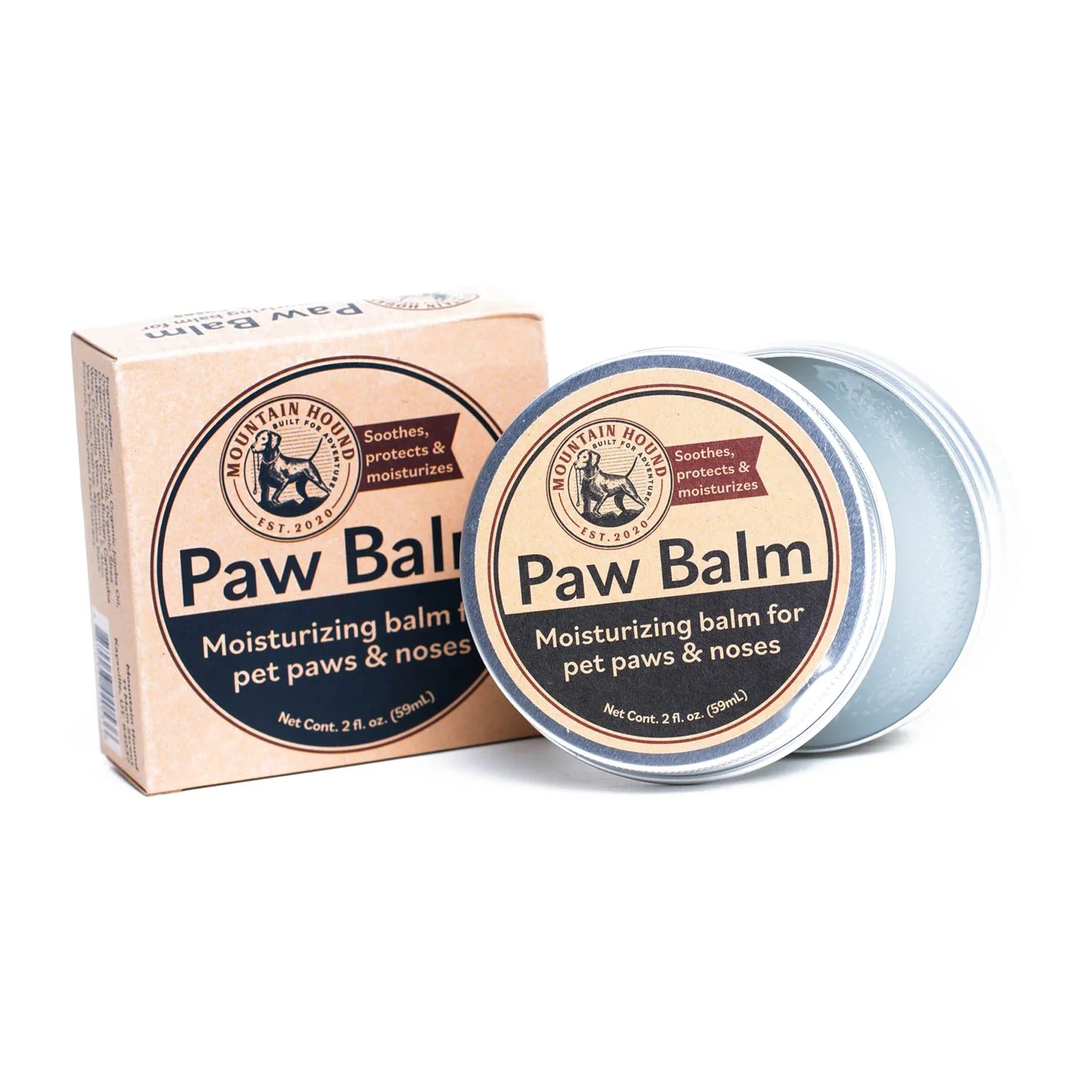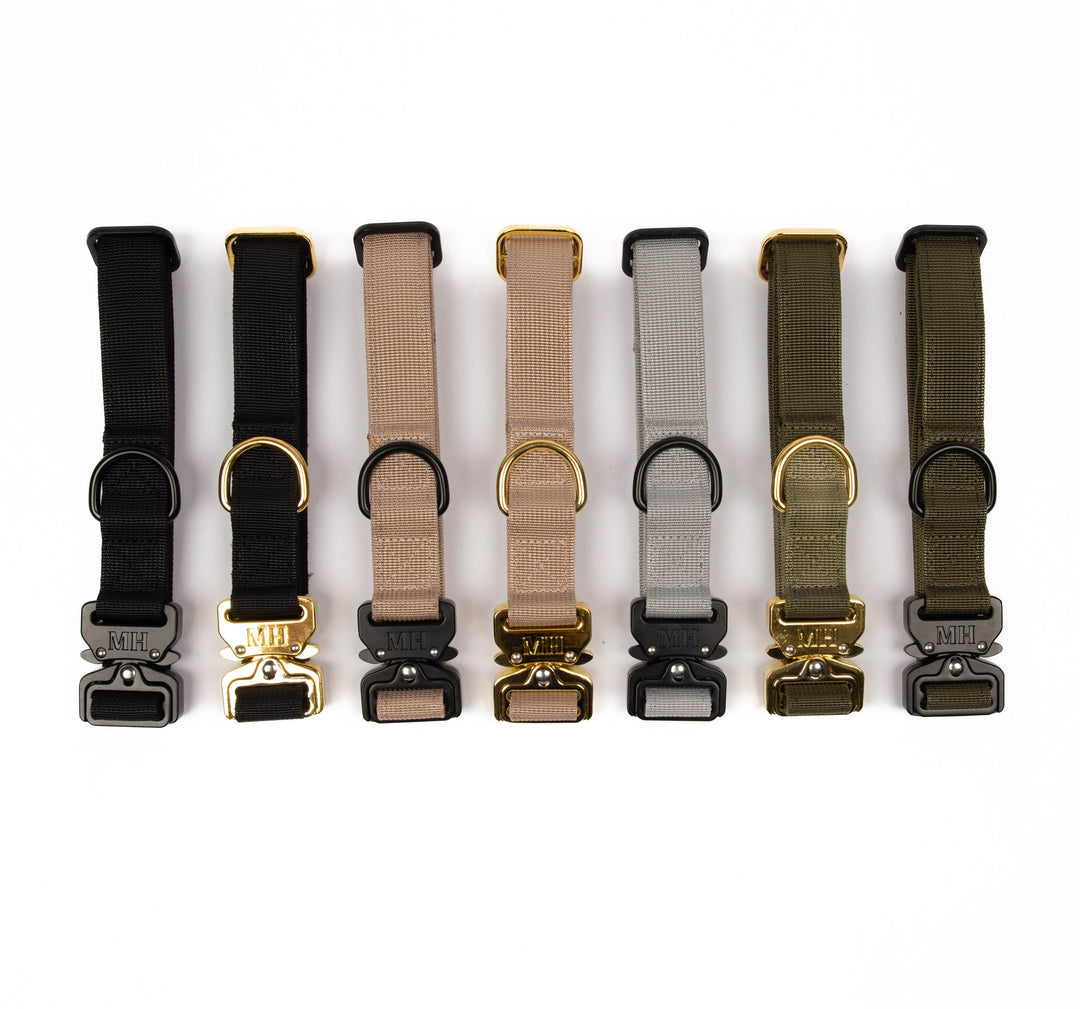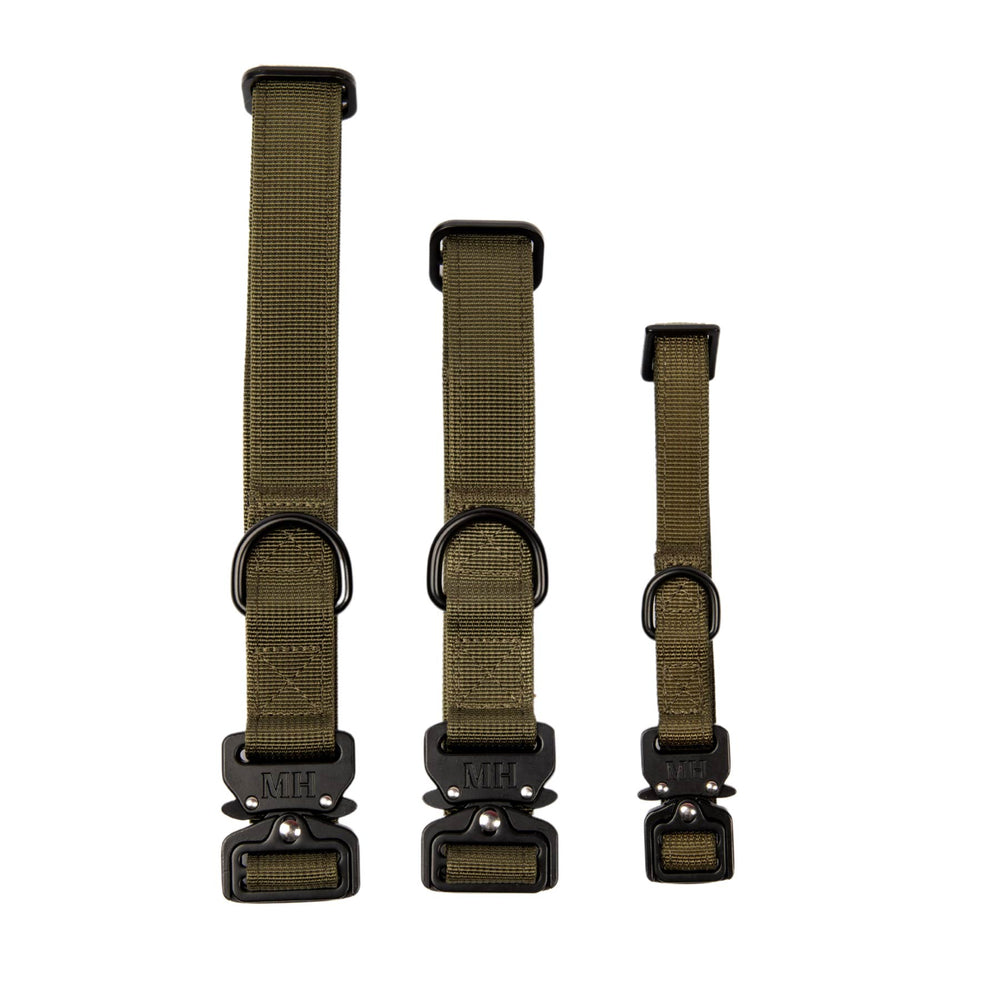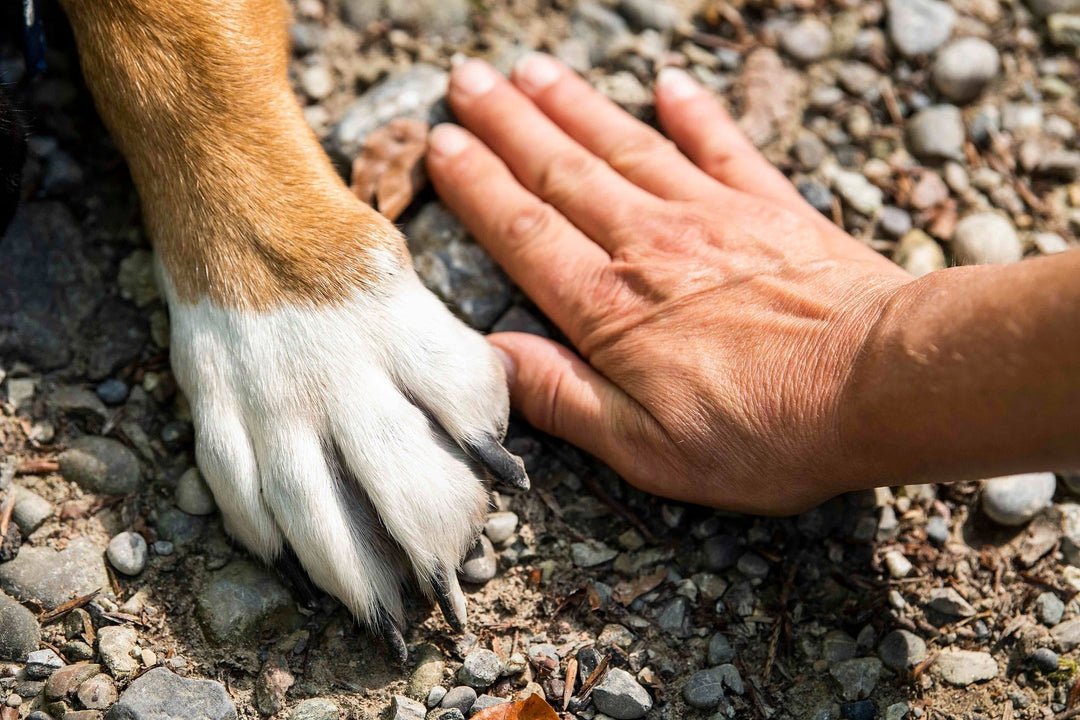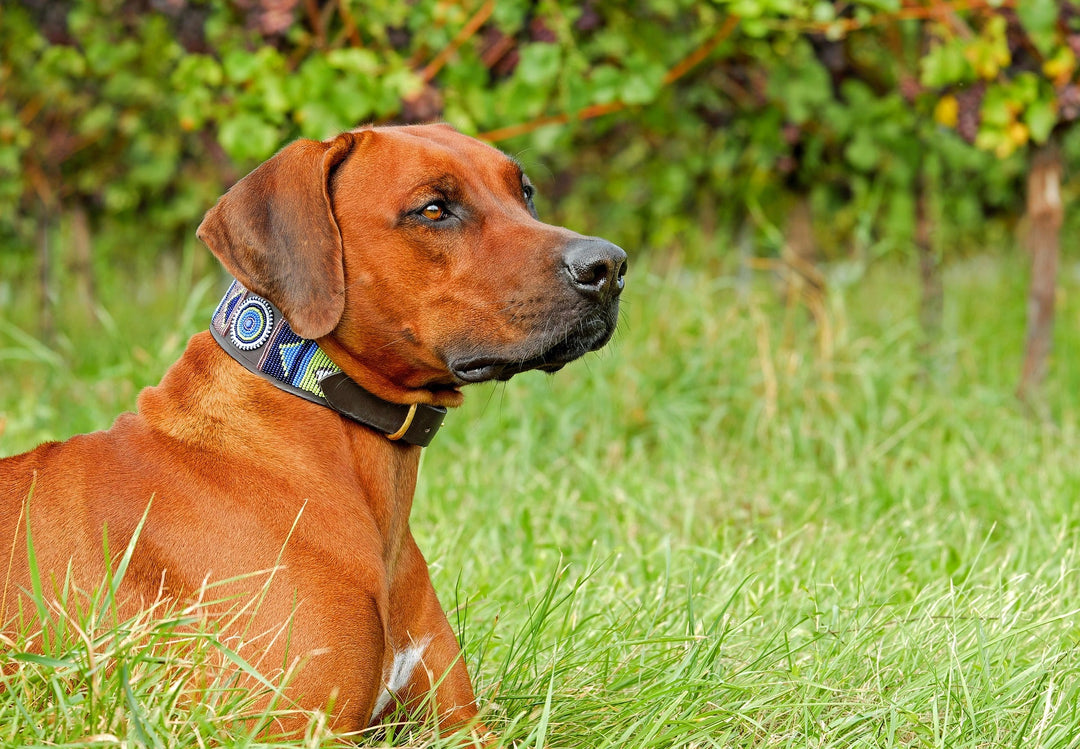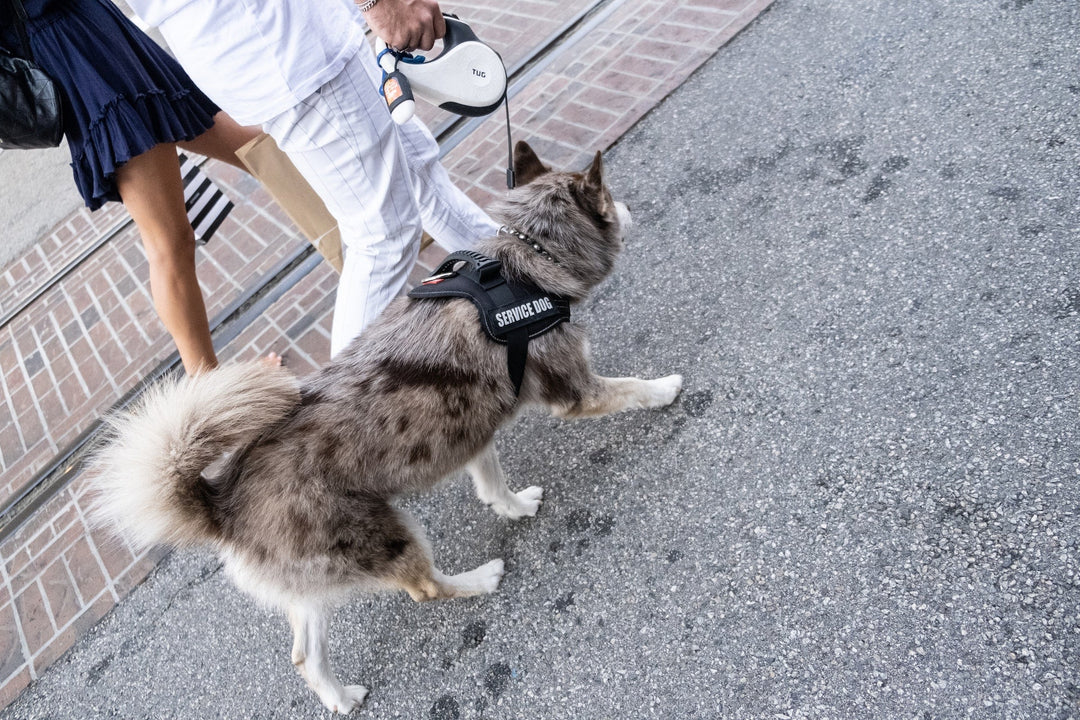Does Your Hound Have Dementia?
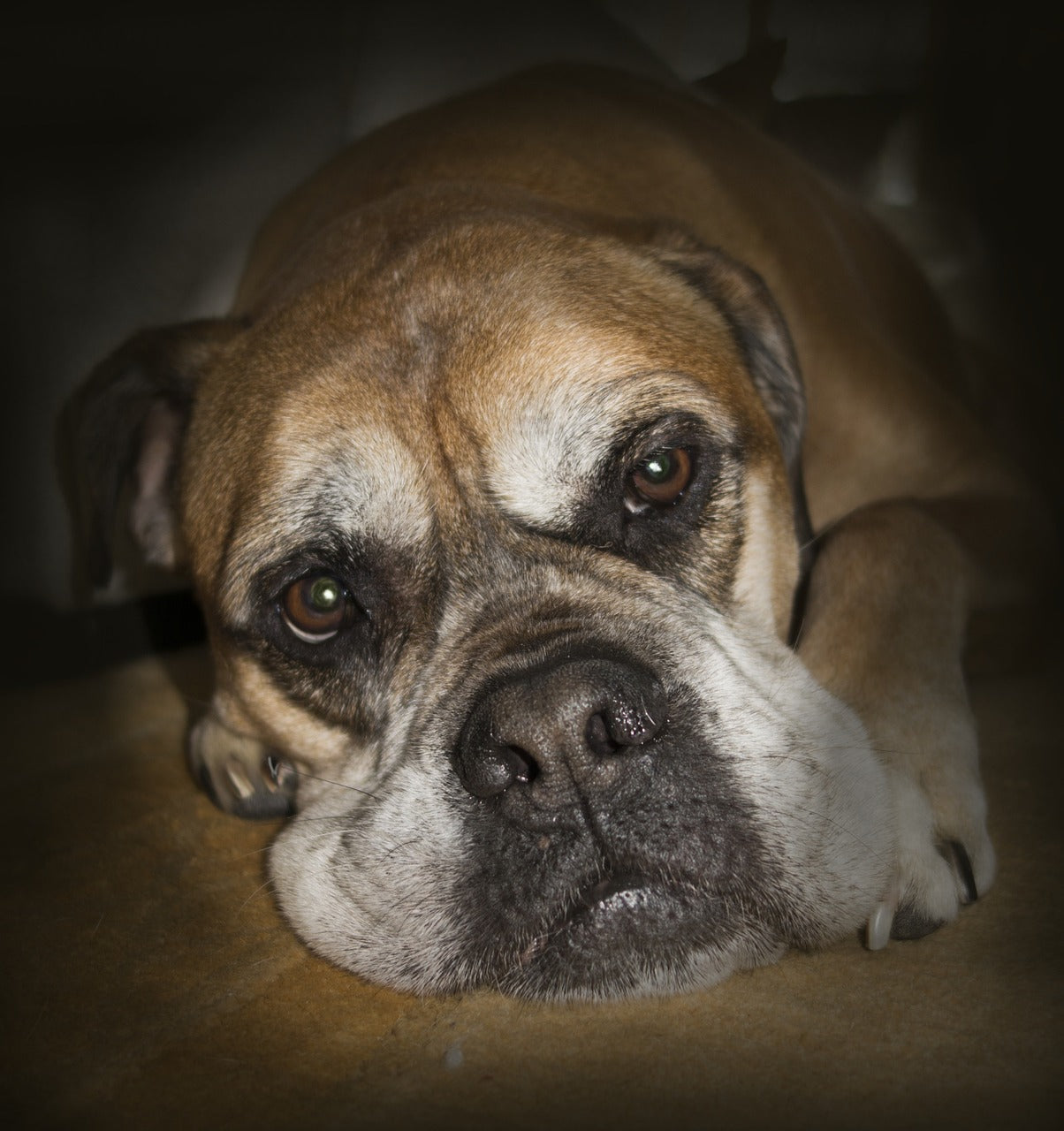
Canine or dog dementia, clinically known as cognitive dysfunction syndrome (CDS), isn't something most pet parents even consider. Why? Because usually, dementia is associated with elderly humans! But the reality is dementia is a very real prospect in senior dogs as they age, because as they age they become more susceptible to certain health issues.
Unfortunately, dementia can be one of these issues. In today's Mountain Hound blog, we will explore the signs of canine dementia, the causes, available treatments, and what you, as pet parents, can do to help your hounds stay healthy and happy.
Signs of Canine Dementia
It can be challenging to determine whether a dog is experiencing dementia, as the signs may develop gradually over time. Common symptoms of canine dementia include disorientation or confusion, difficulty performing previously learned tasks, increased aggression or anxiety, reduced appetite, and increased or decreased sleep.
Symptoms of CDS in dogs can broadly be categorized into four areas:
- Confusion
Not recognizing familiar people/pet friends
Staring blankly at the wall
Pacing
Getting stuck going around objects
- Behavior changes
Excessive licking
Irritability (extreme)
Poor appetite
No interest in activities they enjoy (walking, playtime)
Lack of grooming (self)
- Changes in sleep patterns
Night pacing
Barking or whining at night
- Anxiety and memory issues
Urinating or soiling in the home
Difficulty learning new tasks
Disregard for house training/rules
Causes of Dog Dementia
Canine dementia can occur in any dog breed, but some are more susceptible than others. Breeds more likely to experience dementia include geriatric dogs (senior hounds between 11 and 16 years old), German Shepherds, Boxers, and Miniature Poodles.
The primary cause of canine dementia is still unknown, but it is believed to be related to structural and chemical distortions in the brain. The accumulation of beta-amyloid (proteins) in the brain and reduced blood flow to the brain are also factors that contribute to cognitive decline in dogs.
Treatments Available for Canine Dementia
While there is no cure for canine dementia, various treatments are available. Your veterinarian may recommend medications to reduce anxiety and manage behavioral issues.
Natural supplements and vitamins, like Omega-3s and antioxidants, can help support cognitive health and function in hounds. Your vet may also suggest a specialized diet for your dog to help manage your hound's brain health. These diets are rich in antioxidants, essential vitamins, and ingredients beneficial for cognitive function. Good examples of prescription diets include Royal Canin's Mature Consult or Purina Pro Plan's Neurocare.
Tips for Avoiding Doggie Dementia
Provide a healthy diet with adequate nutrients, regular exercise, and mentally stimulating games to help promote cognitive function.
For example, going on a regular walk with your hound is great for mental stimulation. Check out our range of dog leashes perfect for taking your hound on an epic adventure! Use our utility fanny pack or trail blazer dog pack to carry all your doggie essentials, as you focus on spending quality time with your furry companion. Who would have thought dog walking could be so therapeutic!
Keep track of your dog's night routine, create a calm sleeping environment, and reduce daytime naps to help your dog maintain a healthy sleeping pattern.
Take your senior hound for regular vet checkups to detect potential hound-health concerns before they become severe.
Senior Dog Care for Hound’s with Dog Dementia
If your dog is struggling with dementia, several things can be done to support your furry friend.
- Establish a regular hound routine/schedule
- Make environmental modifications to reduce confusion
- Reduce loud sounds/noises and bright lights in your home
- Provide mental stimulation (puzzle games), including playtime with your dog
- Install a night light to help your senior hound navigate your home in the dark
- Invest in puppy training pads to minimize potty accidents
- Purchase an orthopaedic foam pet bed with removable covers (washable) to make rest time a little more comfortable for your hound.
- Stay patient, loving, and continue with your regular training regime
Final Thoughts
Caring for a dog with CDS can be a challenging and emotional experience for pet parents. Your dog may need more support and less stressful environments to maintain good physical and mental health as their health declines. It can be painful to watch a beloved pet struggle, but with the right support and resources, pet owners can help improve their dogs' quality of life. If you suspect your furry hound exhibits signs of dementia, it's time to talk to your veterinarian for proper guidance. Remember that love and support are fundamental—no matter the diagnosis.
Image by Annemieke Weverbergh from Pixabay
